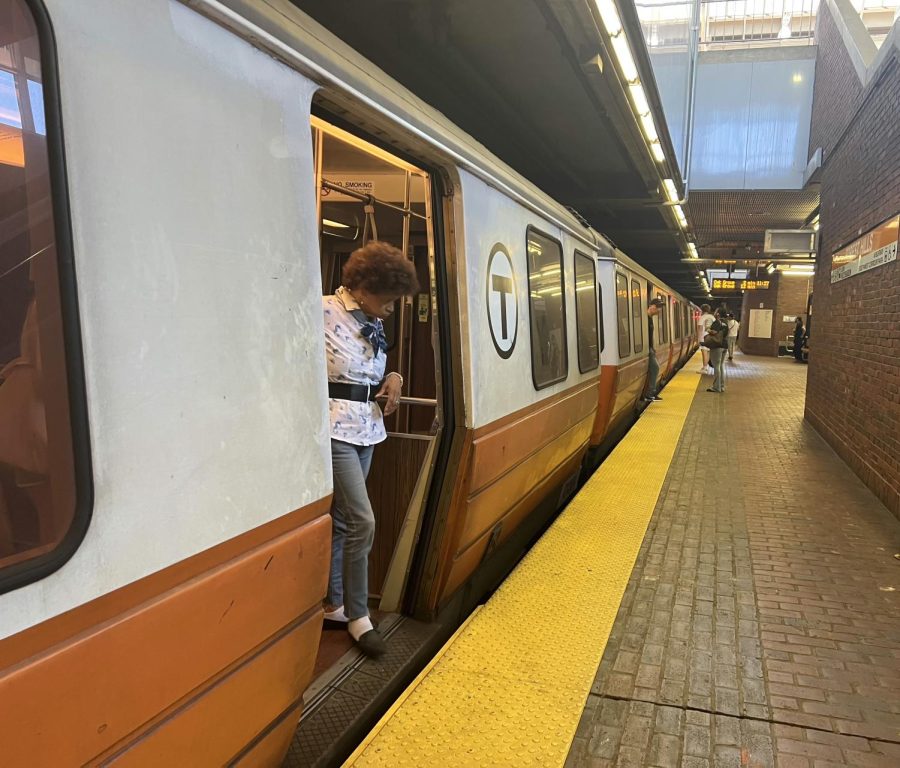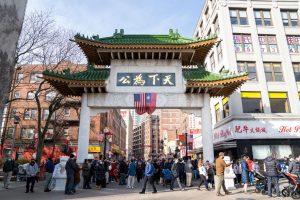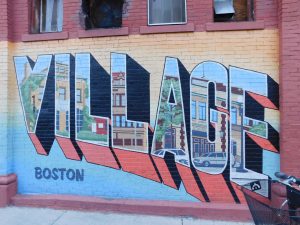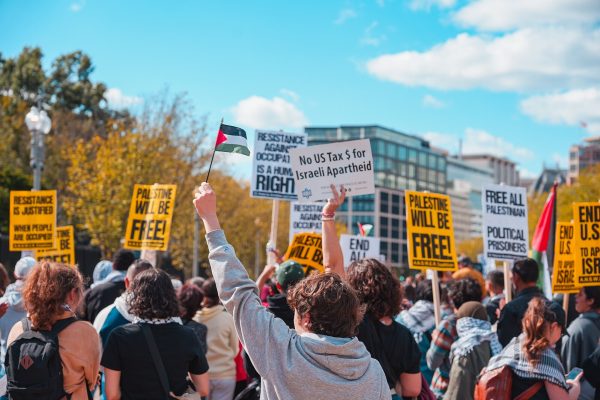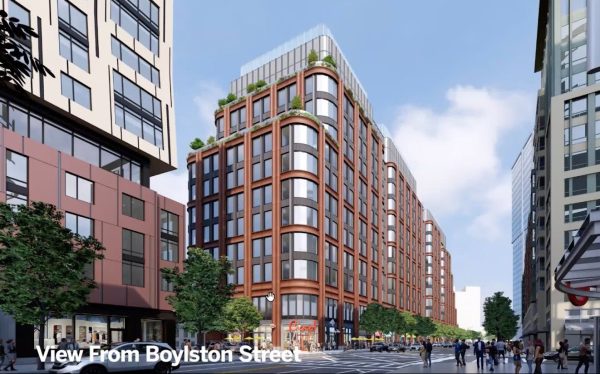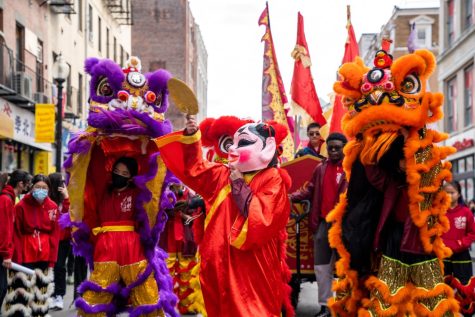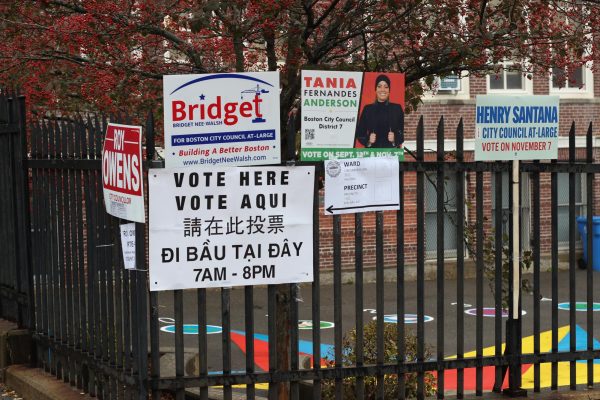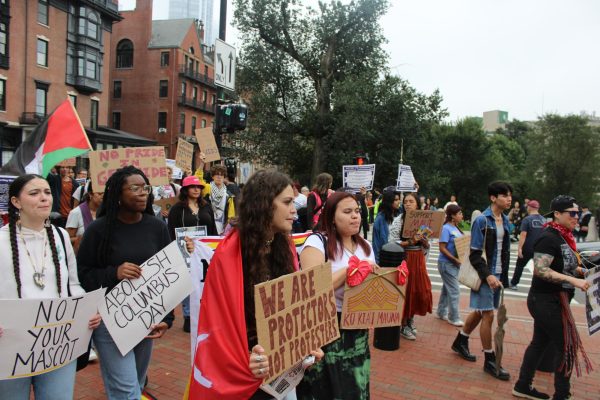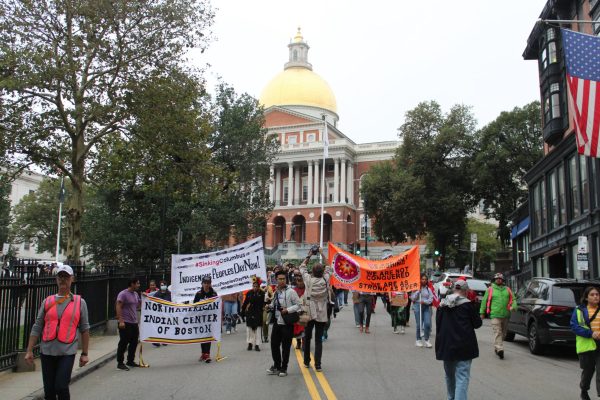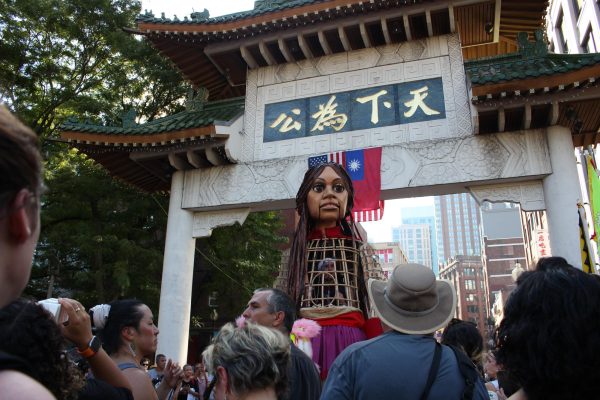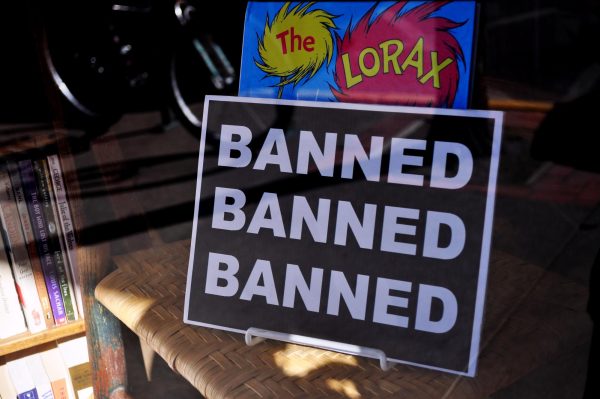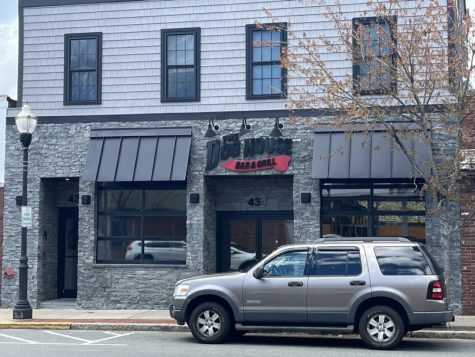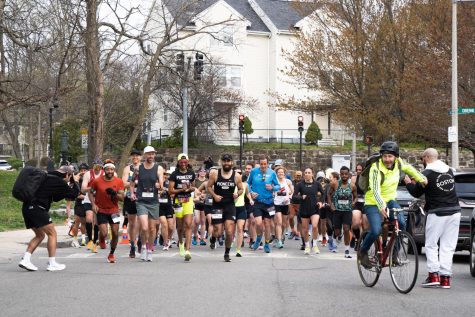As Green, Orange Line Service Halts, Local Business Stalls
Photo: Melissa Clavijo
A woman steps out of a train at the Forest Hills stop
August 22, 2022
On August 5, the MBTA announced shutdowns of the Orange and Green Lines serving the communities of Malden, Medford, Somerville, and Boston, in efforts to upgrade the 120-year-old rapid line. With an average of 101,000 commuters depending on the Orange Line every day from Malden to Jamaica Plain, riders and neighboring businesses brace for a “transportation emergency’ starting this week.
Planned projects include track repairs to circumvent slowdowns, upgrade signs, and renew infrastructure at several stations as part of a 30-day revitalization and safety work plan. Additionally, Green Line service is suspended between Government Center and Union Square through September 18.
MBTA General Manager Steve Poftak said via press release that the decision to shut down the Orange Line — which was prompted by a Federal Transit Administration safety inspection and followed numerous train derailments, injuries, a train fire, a passenger death, and collisions — was not taken lightly.
If the two-fold blow of COVID-related financial strains and rising supply costs due to inflation wasn’t enough, local businesses, particularly smaller, non-brand name stores, brace for dwindling footfall due to the lack of commuters in the area. The proliferation of franchises in Boston already posed a challenge to local businesses — but now, the shutdowns pose an additional threat to standalone retailers.
Ana Ramos, a manager at Tradesman Coffeeshop located in Northeastern University’s Financial District Campus, notes that even though it is still early for a substantial change, the shop is uncharacteristically quiet for a Monday morning. The coffee shop opened in 2015, closing for less than three months during COVID lockdowns in 2020––but began to see an influx of students and working professionals shortly after. “When the schools are out, we still get the corporate crowd. It’s too soon to say, but I definitely expect the shutdowns to [deter] commuters from stopping by for coffee,” says Ramos, who has worked at the store since 2019. “We are coffee fanatics, and we are passionate about hospitality,” she continues, “the local community counts on us, just as we do on them.”
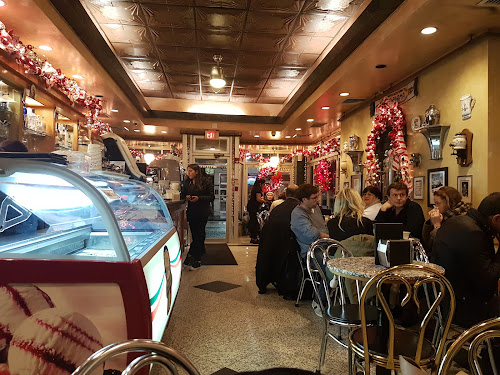
In the North End, Tory Ano, a local guide, is skeptical of how long the shutdowns will last and expects the construction to last longer than 30 days. She says, “This place is the closest you’re going to get to authentic Genoa cannolis in Boston,” about Caffé Vittoria, a rustic mainstay that opened in the North End in 1929, which also functions as an encomium to Boston’s rich Italian-American history. She adds, “COVID was already brutal for businesses, and while tourists will end up seeing this place on Yelp, the [MBTA] shutdowns will prevent the community from discovering hometown gems.”
The shutdowns portend “severe” congestion on Greater Boston roadways as riders who rely on the MBTA seek alternative transportation. Last week, State Highway Administrator for the Commonwealth of Massachusetts Jonathan Gulliver said the shutdown would “have substantial regional travel impacts beyond just transit users,” based on traffic modeling. Along with announcing the shutdowns, the MBTA also signed a $37 million contract with A Yankee Line, a Boston bus company, to run 200 vehicles tasked with ferrying commuters along the Orange Line.
At the Forest Hills station in Jamaica Plain, Cheryl Daniel, a graduate student at Northeastern University, believes that the Orange Line shutdown is the result of the MBTA’s negligence, and will leave thousands of people of color in limbo. “ This is the direct outcome of the MBTA’s lack of value for brown and black communities. People’s livelihoods depend on the Orange Line. Without it functioning, how are we supposed to have access to our basic necessities?” she says, “The chaos over the next month during the first month of school could have been prevented.”
The effect of the line shutdowns is expected to have a domino effect on road traffic. Boston officials in recent days have started to prepare for the influx of shuttle buses in the city, as workers started to install the first temporary bus lanes Sunday night around Copley Square, which will reach Government Center later this week. Over the weekend, the T published A Rider’s Guide to Planning Ahead, outlining the upcoming closures, alternative travel options, and accessibility. The guide is currently being translated into eight languages.

